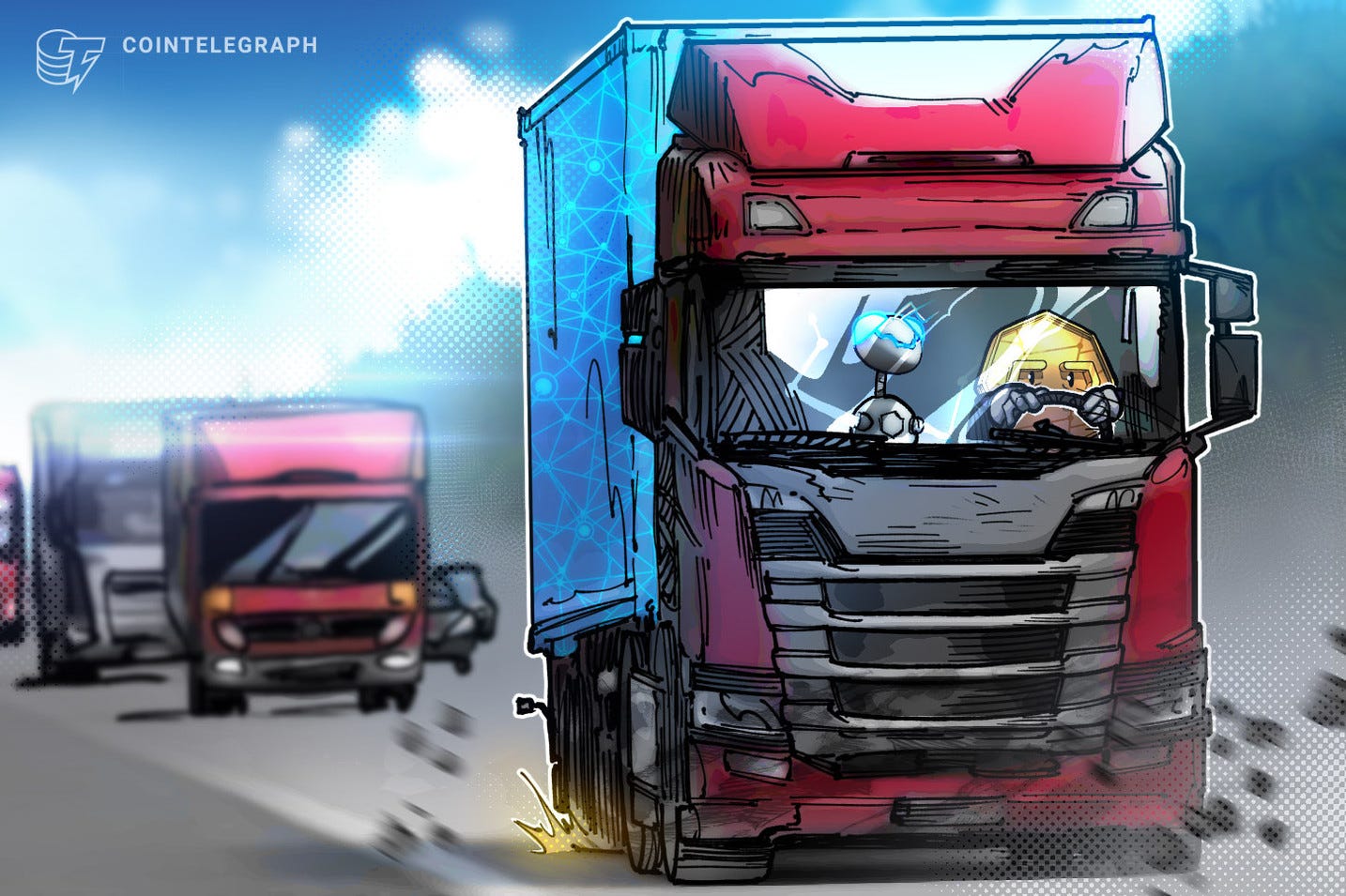Tokenization at the crossroads of the trucking industry to ensure efficient payments
A handful of organizations are combining crypto with decentralized finance models to create better payment systems for trucking companies.
The trucking industry is one of the most important sectors in the world. According to recent statistics, the global freight trucking market was worth over $2.7 trillion in 2021. In addition, it’s been found that millions of commercial driver’s license holders are employed by trucking companies within the United States, a market that is responsible for delivering 70% of all freight.
Given these statistics, it shouldn’t come as a surprise that technology has become a critical component for ensuring the advancement of the trucking industry. Yet while GPS tracking, autonomous driving and other mainstream technologies may be apparent, a couple of organizations are aiming to bring tokenization and decentralized finance (DeFI) to the trucking sector to advance its payment systems.
Philip Schlump, chief commercial officer and lead developer of TruckCoinSwap (TCS) — a Wyoming-based fintech and freight company — told Cointelegraph that there are more than one million trucking companies and third-party logistics firms in the United States relying on banking entities to get paid. Schlump, who is also a former truck driver, explained that this has become the case due to how the full truckload industry’s payment system operates.
While Schlump pointed out that smaller full truckload companies tend to have better payment terms, 45 days is the average time it takes within the United States for truck drivers to get paid. As a result, trucking companies have become reliant on factoring firms to help truckers receive quicker payments, as these entities ensure payments are made within 10–14 days.
Yet, Schlump noted that this alternative eats away at drivers’ salaries. “Factoring companies typically charge 3% gross on every invoice, so a 20–25% interest rate is annualized over the term. These banking entities are collecting up to 90% of net revenue on every load simply because most carriers cannot wait the industry standard of 30–180 days to be paid directly by shippers,” he remarked.
Schlump believes that tokenization can potentially solve this problem. For example, Schlump explained that TCS replaces factoring companies with a token-based settlement service that allows trucking companies to get paid at face value within a few days. In order to ensure this, Schlump explained that TCS launched its “TCS Token” on the CrossTower crypto exchange in September this year. TCS will then work directly with trucking companies to buy a bill of lading using the tokens.
Meanwhile, trucking companies have been successfully implementing blockchain without cryptocurrencies. For example, Xavier Fernandez, chief technology officer and technical lead for Smart EIR — a blockchain-based container management system — told Cointelegraph that Smart EIR uses the Antelope blockchain network (previously EOSIO) to document the history of containers.

